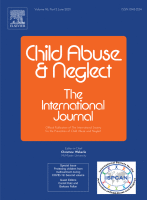This page contains documents and other resources related to children's care in the Americas. Browse resources by region, country, or category.
Displaying 461 - 470 of 3180
The purpose of this critically appraised topic was to analyze the effectiveness of transitional programming for youth leaving the foster care system on increasing abilities of community integration.
"The U.S. Customs and Border Protection agency is still expelling most migrants under a Trump policy indefinitely closing the border during the pandemic to 'nonessential' travel," says this article from the Los Angeles Times, "though the Biden administration in February announced it would exempt unaccompanied children."
The aim of this study was to examine the academic trajectories of children in out-of-home care (OOCH) and whether kinship care has a protective effect relative to nonkin foster care.
This study utilized secondary data from National Survey of Child and Adolescent Well-being (NSCAW II) to examine the experiences of 298 youth and their caregivers.
The current discussion paper explored the impact of COVID-19 on child maltreatment reports and CPS responses by comparing countries using available population data.
In this article, researchers Philip Fisher, Joan Lombardi, and Nat Kendall-Taylor present data from the RAPID-EC U.S. national survey of families with young children and look back at three overarching findings from the first year of the survey.
The current study assessed the efficacy of the Attachment and Biobehavioral Catch-up intervention for reducing behavior problems in 122 children adopted internationally.
"Mexico said Wednesday it is planning to set up 17 shelters for underage migrants along the country’s southern border, as well as some along the northern border with the United States, amid a wave of child migrants coming from Central America," says this article from AP News.
This webinar sheds light on the often under-the-radar work and impact of more than 3,000 Family Resource Centers in the U.S.
"Researchers now estimate that more than 40,000 children in the United States have lost a parent to Covid-19," says this article from Vox.


